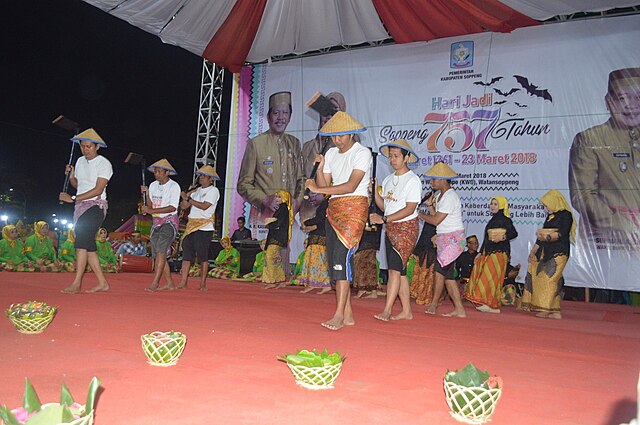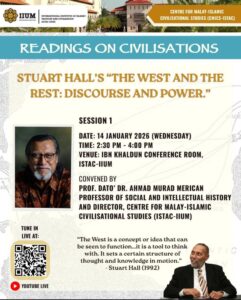Interpretation of Mappadendang Music in the Rice Harvesting Tradition of the Bugis Tribe of South Sulawesi: Roland Barthes’ Semiotic Analysis

Author (s) : Andi Aan Fadriawan; Heni Kusumawati; Nurul Inayah Khairaty
Institution : Master of Arts Education Program, Faculty of Language Arts and Culture, Yogyakarta State University,
Indonesia
Category : Article, IJMMU
Topics : Mappadendang; Tradition, Semiotics; Cultural Hybridization
Abstract : The Mappadendang tradition, a rice harvest ceremony typical of the Bugis Wajo community in South Sulawesi, has a meaning rich in social, cultural, and religious values. This article aims to explore the symbolic interpretation and cultural values contained in Mappadendang music and performances through a semiotic approach. By identifying the denotative and connotative meanings of this music, this article explores how music functions as a symbol in the context of culture, beliefs, and the relationship of the Bugis community with nature, as well as identifying efforts to preserve this tradition amidst the flow of modernization. Data were obtained from several sources collected from various literature such as books, articles, and related journals. The results of the study show that Mappadendang is not only an expression of gratitude for the harvest, but also reflects the social structure of the Bugis Wajo community. The music and movements in the Mappadendang performance contain symbols that are full of meaning, reflecting noble values such as mutual cooperation, respect for ancestors, and the relationship between humans and nature. However, the Mappadendang tradition faces serious challenges due to the influence of cultural hybridization and technological developments. The lack of interest from the younger generation and the dominance of popular culture threaten the sustainability of this tradition.
Article can be downloaded here Interpretation of Mappadendang Music in the Rice Harvesting Tradition of the Bugis Tribe of South Sulawesi: Roland Barthes’ Semiotic Analysis






